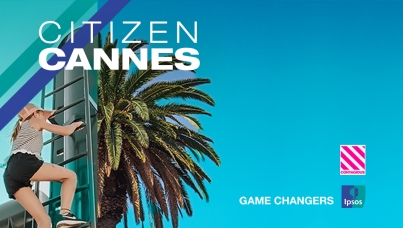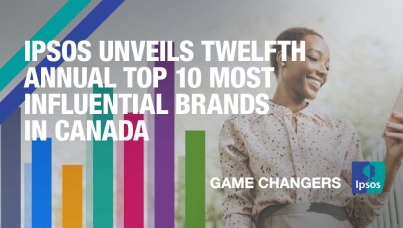The Ontario Election Campaign on Twitter in Review
Since Tim Hudak promised on May 8 to create a million new jobs in part by cutting 100,000 public sector jobs the Conservatives have lead the conversation with the most mentions each week. In total, from May 2 through June 6, the Tories were the focus of 47% of mentions on Twitter. The Liberals trailed at 35% of mentions with the NDP getting the least attention at a distant 18% of mentions during the period.
While the Twitter debate consisted largely of criticism of the Conservative party's Million Jobs plan it appears that it is the NDP who has lost the most ground among those who are active and engaged online. Among the 37% of Ontarians who are online and active (the people who write, comment on and share political Tweets) our polling shows that it has been the Liberals who have won out over the NDP in the battle to be the alternative to the PCs. From mid-May to early June, the Liberals have made the greatest gains in voter intentions increasing their share of the vote from 30% to 35%. The PCs have remained fairly stable from 32% to 33% and the NDP have dropped from 32% to 28%.
The conversations about the Conservative and Liberal campaigns on Twitter have been overwhelmingly negative with professional and lay partisans on either side of the divide pointing out the flaws in their opponents' plans. Since announcing it on May 8th, Hudak's jobs plan became the biggest target in the campaign. Tweeters initially questioned how public service job cuts translate into private sector job gains. Later, during week four of the campaign, an avalanche of criticism followed from several economists' findings that Hudak's proposal counts eight jobs for each one created. The volleys directed at the Liberals, meanwhile, had very little to do with their plan for the future, and everything to do with a legacy of scandal in the form of the $1.1 billion gas-plants scandal and MaRS real estate bailout.
The exchange below between two commentators fairly reflects the overall conversation on Twitter.
In total, mentions of any party have been overwhelmingly negative by a factor of three to one (48% negative versus 16% positive). The Conservative party, which garnered the most attention, also attracted the most negative attention during the campaign with six negative mentions to every positive mention (61% negative versus 10% positive). Although they got less attention than the Conservatives, mentions of the Liberal campaign were somewhat less negative than the Conservatives, although negative mentions of the Liberals still outnumbered positive mentions by more than two to one (44% negative versus 18% positive). The attention-deprived NDP, meanwhile, enjoyed a more upbeat conversation with 29% positive mentions slightly outweighing 24% negative mentions.
These results suggest a debate on Twitter that has been largely a negative reaction to events and news coverage in the finest tradition of "gotcha" politics drowning out what little proactive or positive messaging there was.
Looking at the level of engagement overall, we have found that, on average, Canadians engage on Twitter 1.49 times when discussing any public issue (the average taken from Ipsos studies conducted throughout 2013-14). Engagement during the Ontario campaign has averaged 2.06 Tweets per commentator. Between the three parties, the NDP boast the most engaged audience of commentators (2.46 Tweets per commentator), followed by the Liberals (2.29) and Conservatives (2.04).
These are some of the findings of an Ipsos Reid Twitter Analysis based on Tweets occurring between May 2 and June 6, 2014. For this analysis a Boolean search query was created to identify all English language Twitter discussions from people in Ontario that contained mentions of the Ontario NDP, Liberals, and Conservatives, and all mentions of the party leaders. Each party and leader was put in a separate search query so they could be compared. Official party Twitter accounts and some terms often associated with the federal parties were excluded. All Tweets were pulled from Sysomos between May 2 and June 6. The scan pulled in 251,719 Tweets between these dates. Of these, we pulled a random sample of 300 Tweets per party and coded them for sentiment during each week of the campaign, for a total of 1,500 coded Tweets per party (or 4,500 across all parties).
For more information on this news release, please contact:
Mike Colledge
President
Ipsos Reid
Public Affairs
613.688.8971
[email protected]
About Ipsos Reid
Ipsos Reid is Canada's market intelligence leader, the country's leading provider of public opinion research, and research partner for loyalty and forecasting and modelling insights. With operations in eight cities, Ipsos Reid employs more than 600 research professionals and support staff in Canada. The company has the biggest network of telephone call centres in the country, as well as the largest pre-recruited household and online panels. Ipsos Reid's marketing research and public affairs practices offer the premier suite of research vehicles in Canada, all of which provide clients with actionable and relevant information. Staffed with seasoned research consultants with extensive industry-specific backgrounds, Ipsos Reid offers syndicated information or custom solutions across key sectors of the Canadian economy, including consumer packaged goods, financial services, automotive, retail, and technology & telecommunications. Ipsos Reid is an Ipsos company, a leading global survey-based market research group.
To learn more, please visit www.ipsos.ca.
About Ipsos
Ipsos is an independent market research company controlled and managed by research professionals. Founded in France in 1975, Ipsos has grown into a worldwide research group with a strong presence in all key markets. Ipsos ranks third in the global research industry.
With offices in 86 countries, Ipsos delivers insightful expertise across six research specializations: advertising, customer loyalty, marketing, media, public affairs research, and survey management.
Ipsos researchers assess market potential and interpret market trends. They develop and build brands. They help clients build long-term relationships with their customers. They test advertising and study audience responses to various media and they measure public opinion around the globe.
Ipsos has been listed on the Paris Stock Exchange since 1999 and generated global revenues of e1,712,4 million (2 274 M$) in 2013.
Visit www.ipsos.com to learn more about Ipsos' offerings and capabilities.





